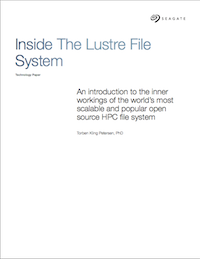SYDNEY, March 30, 2022 – Q-CTRL, a developer of quantum technologies, today announced a partnership with The Paul Scherrer Institute (PSI), a research institute for natural and engineering sciences in Switzerland, to pioneer R&D in the scale-up of quantum computers.
This partnership builds on the collaboration of PSI and ETH Zurich, one of the world’s premier public research universities and a quantum science powerhouse, who formed the ETH Zurich – PSI Quantum Computing Hub in May 2021 on PSI’s campus in Villigen. Both are working to translate groundbreaking quantum computing research into building systems at scale. They’ve now partnered with Q-CTRL to provide the critical infrastructure software tools for system characterization, AI-based automation, and hardware optimization that are essential for large-scale quantum computing to become reality.
“Q-CTRL’s focus on solving the automation and performance challenges in large-scale quantum computing align perfectly with the PSI Quantum Computing Hub’s mission,” said Q-CTRL Founder and CEO Professor Michael J. Biercuk. “We’re honored to partner with the exceptional engineers and researchers at PSI to combine their system engineering prowess with infrastructure software to truly move the research field forward.”
As PSI seeks to scale up quantum hardware, Q-CTRL’s unique expertise in quantum control and AI-based automation makes the company a natural fit to help accelerate the pathway to the first useful quantum computers. Both teams have extensive experience in quantum computing based on trapped ions, including specialized approaches in error correction leveraging the unique properties of trapped ions. Together, PSI and Q-CTRL will aim to solve the critical challenges enabling large-scale, quantum-error-corrected quantum computing to become a reality.
“Q-CTRL’s hardware agnostic, yet hardware-aware tools will be very valuable in finding optimal control solutions that ensure uniform performance across larger qubit arrays,” said Dr. Cornelius Hempel, Group head, Ion Trap Quantum Computing, Paul Scherrer Institute. “As we go to larger and larger machines and continuous operation of testbeds, efficient and automated tuneup and calibration procedures become an essential aspect of day-to-day operations – it’s just not possible to continue using brute-force approaches at scale. Our team is very excited to leverage the tools the Q-CTRL team has developed in this space.”
The computational power of quantum computing is expected to deliver transformational capabilities in applications ranging from drug discovery and enterprise logistics to finance. However, the underlying hardware is extremely unstable and fragile, hampering these machines from reaching their full potential. Q-CTRL is focused on delivering hardware-agnostic and fully automated error-suppressing enterprise software that will enable useful quantum computing for organizations around the world. Its team was recently awarded a US SBIR grant from the Department of Energy focused on quantum computer automation, and this partnership will build on those research developments.
About Q-CTRL
Q-CTRL is building the quantum technology industry by overcoming the fundamental challenge in the field – hardware error and instability. Q-CTRL’s quantum control infrastructure software for R&D professionals and quantum computing end users delivers the highest performance error-correcting and suppressing techniques globally, and provides a unique capability accelerating the pathway to the first useful quantum computers. This foundational technology also applies to a new generation of quantum sensors, and enables Q-CTRL to shape and underpin every application of quantum technology.
Q-CTRL has assembled the world’s foremost team of expert quantum-control engineers, providing solutions to many of the most advanced quantum computing and sensing teams globally. Q-CTRL has been an inaugural member of the IBM Quantum Startup network since 2018, and recently announced a partnership with Transport for NSW, delivering its enterprise infrastructure software to transport data scientists exploring quantum computing. Q-CTRL is funded by SquarePeg Capital, Sierra Ventures, Sequoia Capital China, Data Collective, Horizons Ventures, Main Sequence Ventures, In-Q-Tel, Airbus Ventures, and Ridgeline Partners. The company has international headquarters in Sydney, Los Angeles, and Berlin.
About PSI
The Paul Scherrer Institute PSI is the largest research institute for natural and engineering sciences in Switzerland, conducting cutting-edge research in three main fields: matter and materials, energy and the environment and human health. PSI develops, builds and operates complex large research facilities such as the synchrotron Swiss Light Source (SLS), the free-electron X-ray laser SwissFEL and the SINQ neutron source. PSI employs 2100 people and is primarily financed by the Swiss Confederation. The institution provides access to its large research facilities via a User Service to researchers from universities, other research centers and industry.



